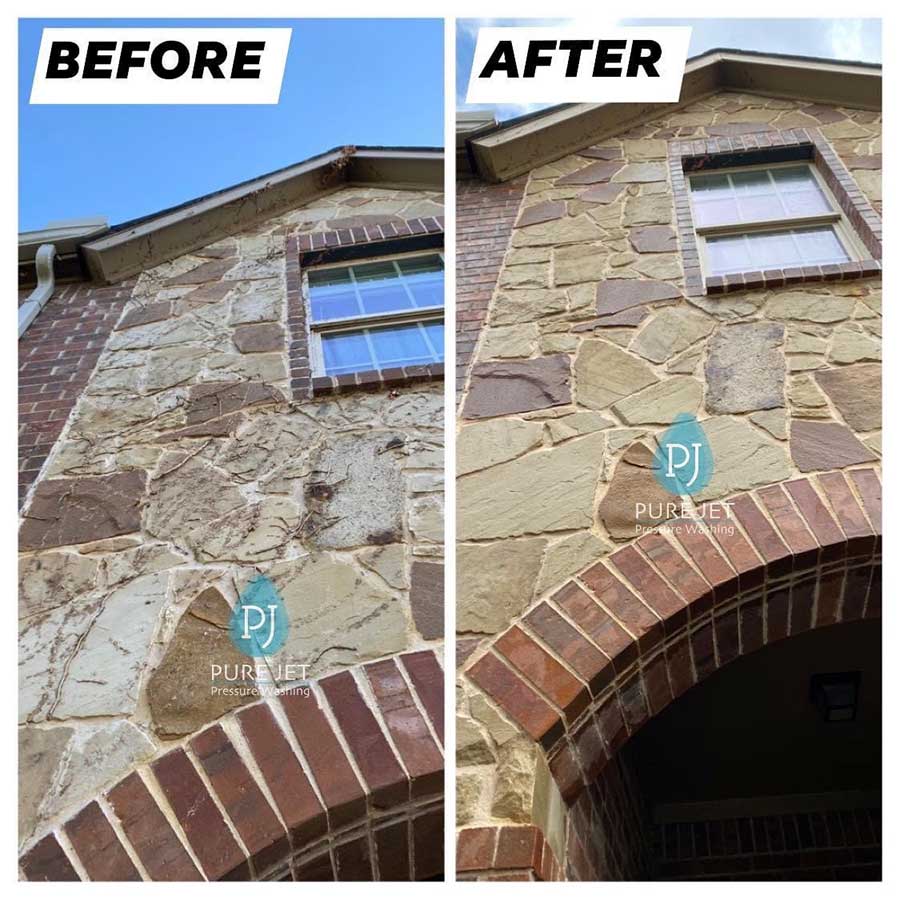
When it comes to maintaining your home's curb appeal in North Texas, nothing beats the results of professional house washing. But homeowners often wonder: is soft washing or pressure washing the right choice for siding? While both techniques clean effectively, the method you choose depends on your siding type and long-term care goals.
This guide breaks down the key differences, explores safe practices, and explains why hiring a local expert ensures the best results for McKinney homes.
What Is Soft Washing?
Soft washing uses specialized low-pressure equipment and eco-friendly cleaning solutions to gently remove dirt, mold, algae, and other contaminants. Unlike pressure washing, which relies on force, soft washing lets the cleaning solution do most of the work. This is especially beneficial for vinyl siding, painted surfaces, and older homes where high PSI could cause damage.
Because the technique is gentle, soft washing protects siding from cracking, water intrusion, and structural wear. It's also ideal for reaching higher areas of your home without risking paint removal or surface gouging.
What Is Pressure Washing?
Pressure washing involves spraying water at a higher PSI to blast away dirt, mildew, and stains. For durable materials like brick or concrete, this method is effective and efficient. However, using pressure washing on delicate siding can cause costly damage if the wrong nozzle or pressure level is applied.
That's why many homeowners rely on a McKinney pressure washing expert who knows how to balance cleaning power with surface protection.
Safe PSI for Vinyl and Brick Siding
One of the most common concerns for homeowners is finding the safe PSI range for siding.
Vinyl siding: Stay under 1,500 PSI. Higher pressure can warp or puncture vinyl. Soft washing is generally the best approach.
Brick siding: Brick can handle higher pressure, typically up to 3,000 PSI. Still, careful technique is necessary to avoid damaging mortar joints.
A professional will adjust PSI settings based on the material, buildup, and condition of your siding to ensure safe results.
Best Nozzles for Siding
Nozzles make a big difference in the outcome of your siding wash. Wide spray patterns are always safer than narrow ones.
Vinyl siding: Use a 40-degree nozzle for gentle coverage that won't drive water behind panels.
Brick siding: A 25-degree nozzle works well, providing enough power to clean without eroding mortar.
General rule: Avoid zero-degree nozzles. They concentrate too much force in one spot and can damage almost any surface.
Why McKinney Homeowners Choose Soft Washing
In North Texas, the climate brings humidity, heat, and frequent storms that encourage mold, mildew, and algae growth. Soft washing is often preferred because it not only removes contaminants but also kills them at the root, slowing regrowth. Pressure washing may clear visible stains quickly but doesn't always address underlying organic growth.
By choosing soft washing, McKinney homeowners protect both their siding and their investment.
The Best Approach for Long-Term Care
The truth is that most homes benefit from a combination of both methods. Brick or stone elements may require pressure washing for stubborn stains, while vinyl and painted surfaces thrive with soft washing. The best results come from professionals who understand when and how to use each approach safely.
Conclusion: For reliable siding care, trust the experts who understand the unique needs of North Texas homes. Call Pure Jet Pressure Wash today for house washing in McKinney and enjoy siding that looks fresh, clean, and protected.
